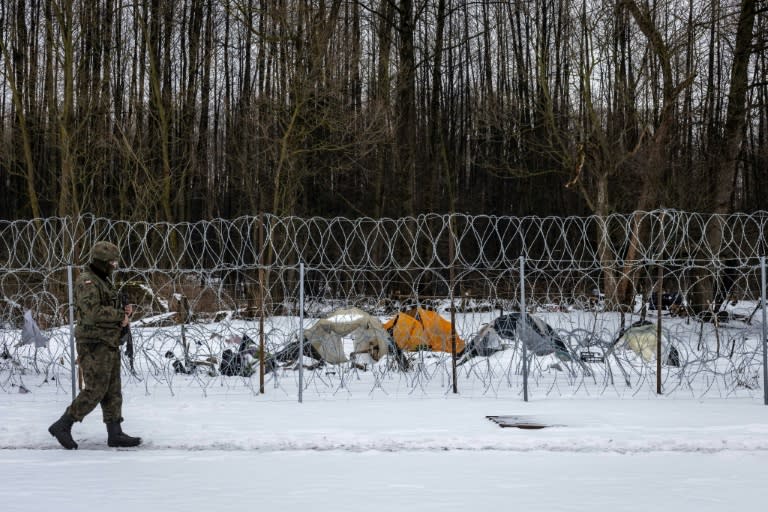Polish PM evokes 'high treason' in case of judge who fled to Belarus

Polish Prime Minister Donald Tusk on Wednesday said the case of a Polish judge with access to classified information who fled to Belarus bears the mark of "high treason".
Belarus announced on Monday that judge Tomasz Szmydt had crossed into the Moscow-allied state, with whom Poland has tense relations, particularly since the start of the war in Ukraine.
"This is a man whose actions bear the mark of high treason... everything suggests that he could have been a very precious source for foreign services," Tusk told reporters.
He called for Szmydt's immunity from prosecution to be lifted, adding that his ties to Belarus went back further than just the past few months.
Szmydt was close to Poland's former governing right-wing Law and Justice (PiS) party, which lost power to the current pro-European Union coalition last year.
After Szmydt fled to Belarus, prosecutors in Warsaw launched an inquiry into possible espionage against him.
Among other things, Szmydt has ruled on cases involving security certificates for secret classified information concerning NATO, the EU and the European Space Agency, according to media reports.
He has also worked at the justice ministry and the trade and companies registry.
He took part in a programme by Russian presenter Vladimir Soloviov, described by the US State Department as "the most energetic pro-Kremlin propagandist".
The judge and his ex-wife had participated in an online campaign attacking judges who spoke out against reforms the PiS had introduced to the Polish legal system.
Poland's ABW secret services have already said they were checking "the extent of the classified information to which the judge had access".
On Wednesday, Tusk called for the creation of "an effective body" for investigating Russia's influence on Polish politics.
Relations between Warsaw and Minsk have been strained for years, due to a political crackdown in Belarus and a dispute over migrants.
They have sunk to new lows since Belarusian President Alexander Lukashenko backed Russia’s invasion of Ukraine in February 2022.
sw-amj/jj

 Yahoo News
Yahoo News 
